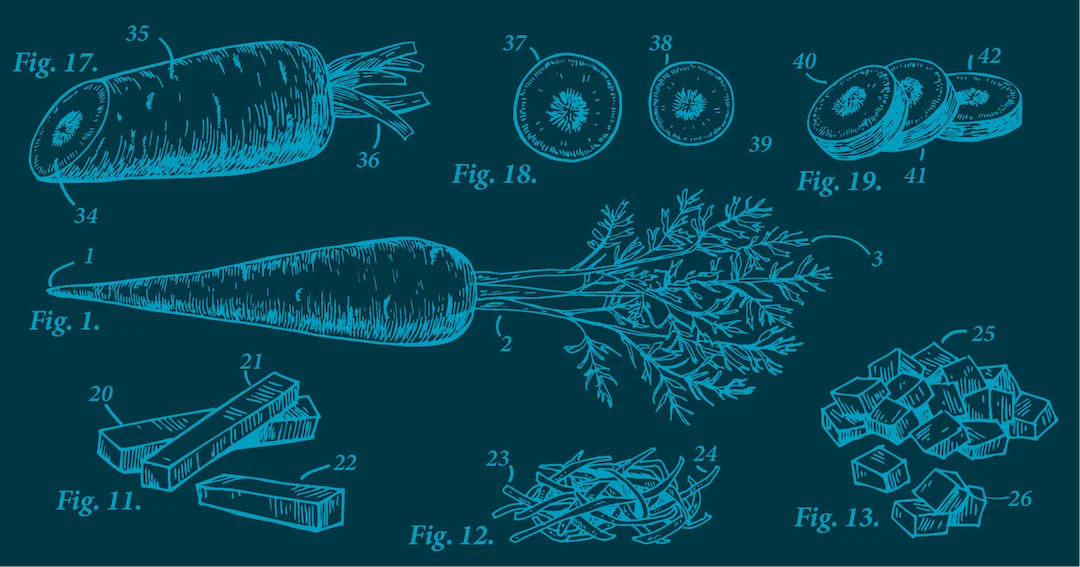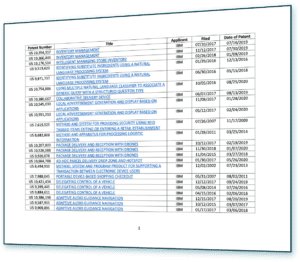
Why Grocers Should be Concerned About Instacart Patents
Opinion Piece: Should you be concerned about Instacart patents? In the digital age, intellectual property is a valuable asset.
In the digital age, intellectual property is one of the most valuable assets your business owns. That’s why, in the late 1990s, tech giants like Apple, Research in Motion (RIM), and Qualcomm began acquiring intellectual property portfolios to ward off competition and protect their rights.
For online grocery retailers, intellectual property could consist of the proprietary technology you use, customer lists, marketing strategies, all the content on your website, new processes developed for your services, and any of your “trade secrets” – all the elements of your business that you or your employees created.

Earlier this year, IBM’s newsroom announced that Instacart acquired more than 250 patents from IBM and that they entered into a mutual patent cross-license with Instacart.
The agreement allows Instacart to continue to strengthen the Instacart patents portfolio. And the license gives Instacart the freedom to use IBM patents in the future growth of its business.
This could have serious implications for the online grocery industry. But before I get into that, I’ll lay out the context of how we got to the state of patents today.
First, in order to protect your intellectual property, it’s important to be aware of the threat posed by “patent trolls.”
The rise of patent trolls
What is a “patent troll”? According to the Electronic Frontier Foundation (EFF), a leading not-for-profit organization defending civil liberties in the digital world, “a patent troll uses patents as legal weapons, instead of actually creating any new products or coming up with new ideas.”
Who can forget RIM’s patent infringement legal battle (and loss) to NTP, Inc.? It became the technology industry’s template on how to defend against and push back on patent trolls.
These acquisitions don’t generally make headlines these days, however, the agreement between Instacart and IBM raised some questions for the grocery retail industry.
What’s behind Instacart’s patent shopping spree?
There are typically two reasons companies enter into this type of agreement to acquire intellectual property:
- A series of patentability/non-infringement studies for new inventions could have uncovered some roadblocks with existing art, and they prefer to build upon existing patents.
- They could be reinforcing a current portfolio with prior art to prepare for a potent defense/offense against existing or new market entrants.
In the case of Instacart, my guess is that it’s reason #2. I reached out to my contacts in Washington, DC, to secure the complete list of the patents Instacart acquired from IBM and was surprised at what I found out.
For example, patent number 10,620,011 is for autonomous vehicle routing. And the patent number 10,289,965 relates to an autonomous vehicle scheduling system for pickup and drop-off passengers.
At first glance, these don’t appear to be related to Instacart’s current business. But think about the future of the industry and these patents start to make more sense.
Given Instacart’s recent legal actions against Uber, these recently acquired patents could indicate that they’re preparing for an all-out assault against a range of delivery service providers, such as Amazon and others. With other options for delivery providers out of the way, the impact of these Instacart patents could mean shoppers (and retail grocers) depend more heavily on Instacart.
What the Instacart patents portfolio means for Grocers
Other IBM patents acquired by Instacart include those for fraud detection, voice recognition, and nutritional data. It doesn’t take a leap of imagination to consider the impact these patents could have on an online grocery retailer.
Grocery retailers have worked hard to build customer loyalty and brand recognition and understand the importance of owning the customer experience. Not having all the delivery, fraud detection, and other options available to them gives Instacart potential power over the digital grocery businesses that food retailers have worked so hard to build.
Future innovation may lie in the hands of those with the strongest intellectual property portfolio, to the detriment of grocery retailers caught in the middle.
What are some ways that grocery retailers can safeguard their businesses? Start by investing in a multi-channel approach that centers around your owned eCommerce experience and reduces reliance on marketplace providers. Learn more.
 Newsroom
Newsroom
